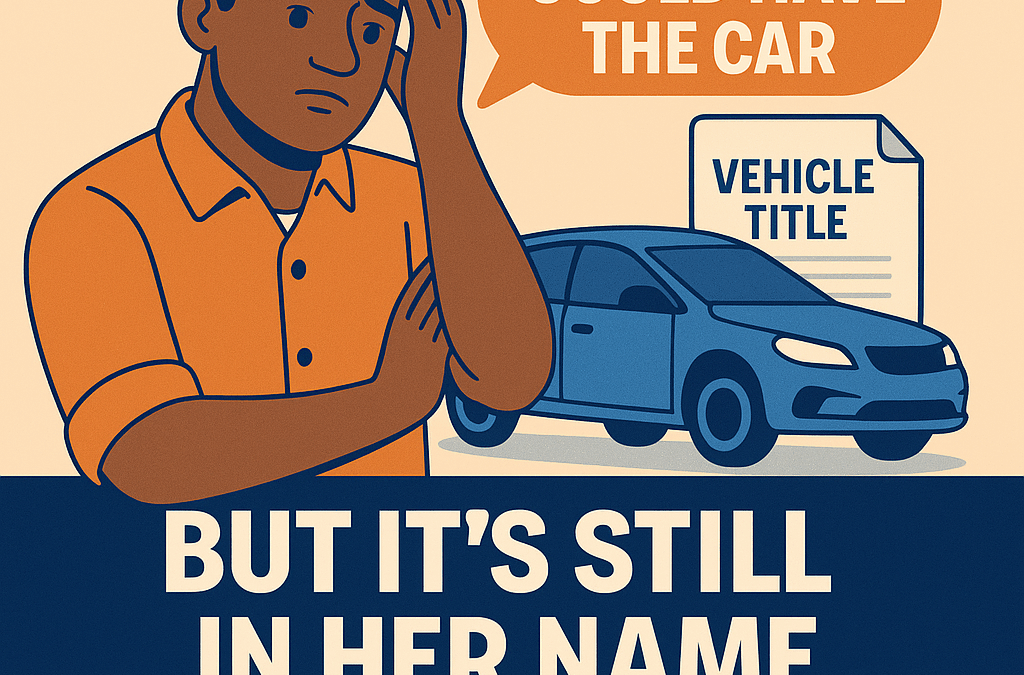That Wasn’t a Gift—It Was a Trap
Divorce is emotional. And sometimes, in the middle of all that hurt, one party tries to play nice—or make peace—with promises they don’t intend to keep.
“She said I could have the car.”
“She told me to stay in the house.”
“She said she’d pay the credit card.”
But here’s the catch: if it wasn’t in writing and approved by the court, it doesn’t mean anything in Georgia.
Verbal agreements in divorce are like promises whispered into the wind—gone the second the situation changes or tensions rise again. You thought you had the car. But she’s still on the title. And guess what? That means she can still sell it. Or report it stolen. Or refuse to hand over the keys.
Why Georgia Law Doesn’t Care What Was Said
Georgia courts care about what’s enforceable—not what was said during a heart-to-heart. Property division must be outlined in a written agreement and approved by the court to be legally binding.
If you rely on good faith and kind words, you might find yourself paying for a vehicle you don’t legally own or stuck with a debt she said she’d cover.
Even if both parties agree verbally, you have no leverage if it’s not in writing.
False Generosity Happens More Than You Think
It’s not always malicious. Sometimes, people say things during separation to ease tension, feel in control, or speed up the process.
But “You can keep the car” turns into “Well, I changed my mind.”
And “You stay in the house” becomes “You’re trespassing.”
These emotional traps can cost you thousands—especially if you’ve been paying on a car that legally isn’t yours or maintaining a house she could sell out from under you.
You’re Not Being Paranoid—You’re Being Smart
Wanting legal clarity doesn’t make you difficult. It makes you responsible.
- Want to keep the car? Make sure the title is transferred through the court order.
- Want to stay in the house? Make sure your name is on the deed—or get a court-ordered timeline for occupancy.
- Worried about shared debt? Get explicit language in the settlement that divides responsibility—and know that even then, creditors can still come after both names on a loan.
So What Should You Do Instead?
If you’re in an uncontested divorce, don’t assume that makes things simple. It just means you’re both agreeing to work together—not that you should skip legal protection.
- Get everything in writing.
- Go through the legal steps for asset transfer.
- Work with an attorney who knows how to make sure your rights are protected under Georgia law.
Kind Words Don’t Pay the Car Note
“She said I could have it” isn’t a legal defense.
In the end, it’s not about trust—it’s about protecting yourself in a system that runs on documents, not declarations. Don’t wait until it’s too late to discover that what you thought was yours…never was.
📞 Need to make it official?
Catherine Verdery Ryan, Attorney at Law, handles uncontested divorce, custody, child support, legitimation, and modifications in Georgia.
Visit catherineryanlawyer.com
Get smart. Get protected.

